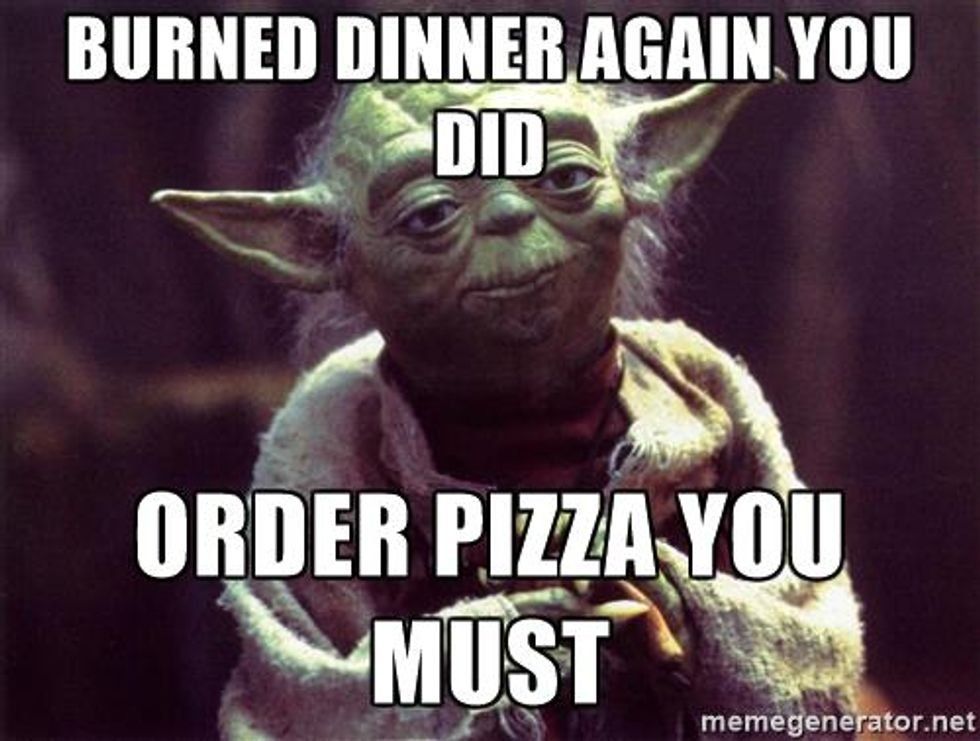Unless you’ve been living under a rock, chances are you’ve heard about a little boy falling into a gorilla pen and said “innocent, caring, protecting, beautiful, etc.” gorilla being shot dead while the little boy was reunited with his “negligent, uncaring, irresponsible, black etc.” mother. I’m not here to say what happened is okay, so calm down behind those keyboards. However, I’m also not here to pass judgment on the call of a professional to kill the gorilla, nor am I here to pass judgment on a mother. I’m not naïve enough to believe that I’m adequately trained to know what to do regarding a gorilla being faced with a small human child. Although I have two younger cousins who play a major role in my life, and I have experienced firsthand what it’s like for them to be there one second and gone the next, I can’t say I know what it’s like to be the mother of a child. So unless you're an expert on gorillas or a perfect parent, how about you stop passing judgment, too.
I’ve told you what I’m not here to do, so let’s get to the part where I tell you what I am here for. What is wrong with us?! Yes, a gorilla died and that is not OK. Yes, a small child was able to get into a pen with a gorilla and that is not OK. Yes, a mother lost her child for an extended period of time and that is not OK. You know what else is not OK?
About 45.3 million people living in poverty in the U.S. More than 1.1 million American soldiers have been killed in all U.S. wars. Every 107 seconds an American is sexually assaulted, resulting in close to 293,000 reported sexual assaults in a year. This is merely in our own country. Shall I tell you a bit about crises other countries are facing?
The death count in Syria is 450,000 and of those, about 50,000 are children. More than 20 percent of girls in Sierra Leone miss school due to menstruation, and 30 percent in Afghanistan and Nepal miss for that same reason. At least 20.9 million men, women, and children are bought and sold worldwide into sex trafficking, the fastest growing criminal “business” in the world.
Could someone remind me why people are hashtagging “Justice for Harambe” or why 400,000 plus are petitioning that the child’s mother be punished or how the color of her skin somehow relates to what happened? Then on the flipside, thousands of people are making memes about black vs. white gorillas being treated differently, gorillas and police, gorillas running from children, and the list goes on. Which, by the way, African Americans are incarcerated at about 6 times that of Caucasians, so “joking” about race in this situation (or any) really isn’t all that funny. What is responding with more hate going to accomplish?
If we would come together as a people the way we are for this gorilla maybe, just maybe we might solve some substantial problems in the world. Yes, I agree that protecting the lives of animals—especially endangered species is important—but at what cost to the rest of the world? Were we really supposed to potentially let a child die in that situation? To be honest, I’m over here wondering why we still even have zoos, but that’s another topic for another day. What will it take for us all to band together like this and hashtag “Justice for Earth” or petition for the punishment of those who commit severe evils in the world? If a gorilla can die in the place of a child and the world come together like it’s the Second Coming, I’m guessing we can get behind causes affecting us all as a planet of people, plants, and animals.
I understand the outrage over this death. I understand the outrage over this situation being possible in the first place. I’m truly not trying to negate the passionate feelings people have had over this tragedy. A mother lost her child, and that could have easily been a permanent loss of life; instead, a gorilla took the fall for another’s mistake. None of that is OK. None of the other tragedies of the world are OK. However, if we’re going to come together over this death, shouldn’t we be doing the same for other deaths? Shouldn’t we be doing the same for all of the other atrocities occurring? Most importantly, shouldn't we be doing more than merely sitting behind a keyboard raging about it? Let's all get out there and make a change. Hashtagging and judging others won't save us; our actions out in the world will.
One of my favorite quotes comes from my favorite novel “The Perks of Being a Wallflower” by Stephen Chbosky, and I think it fits in with this situation beautifully. Charlie, the main character, says, “I think that if I ever have kids, and they are upset, I won't tell them that people are starving in China or anything like that because it wouldn't change the fact that they were upset. And even if somebody else has it much worse, that doesn't really change the fact that you have what you have.” There are millions of reasons to be upset, and we shouldn’t change what we get upset about. Like Charlie says, even when others have it worse, we have what we have. What he doesn’t say, however, is that we also have the ability to prioritize, and maybe we should try it sometime.






 man making a coffee lattePhoto by
man making a coffee lattePhoto by  Photo by
Photo by  Photo by
Photo by  Photo by
Photo by 









 Photo by
Photo by 











